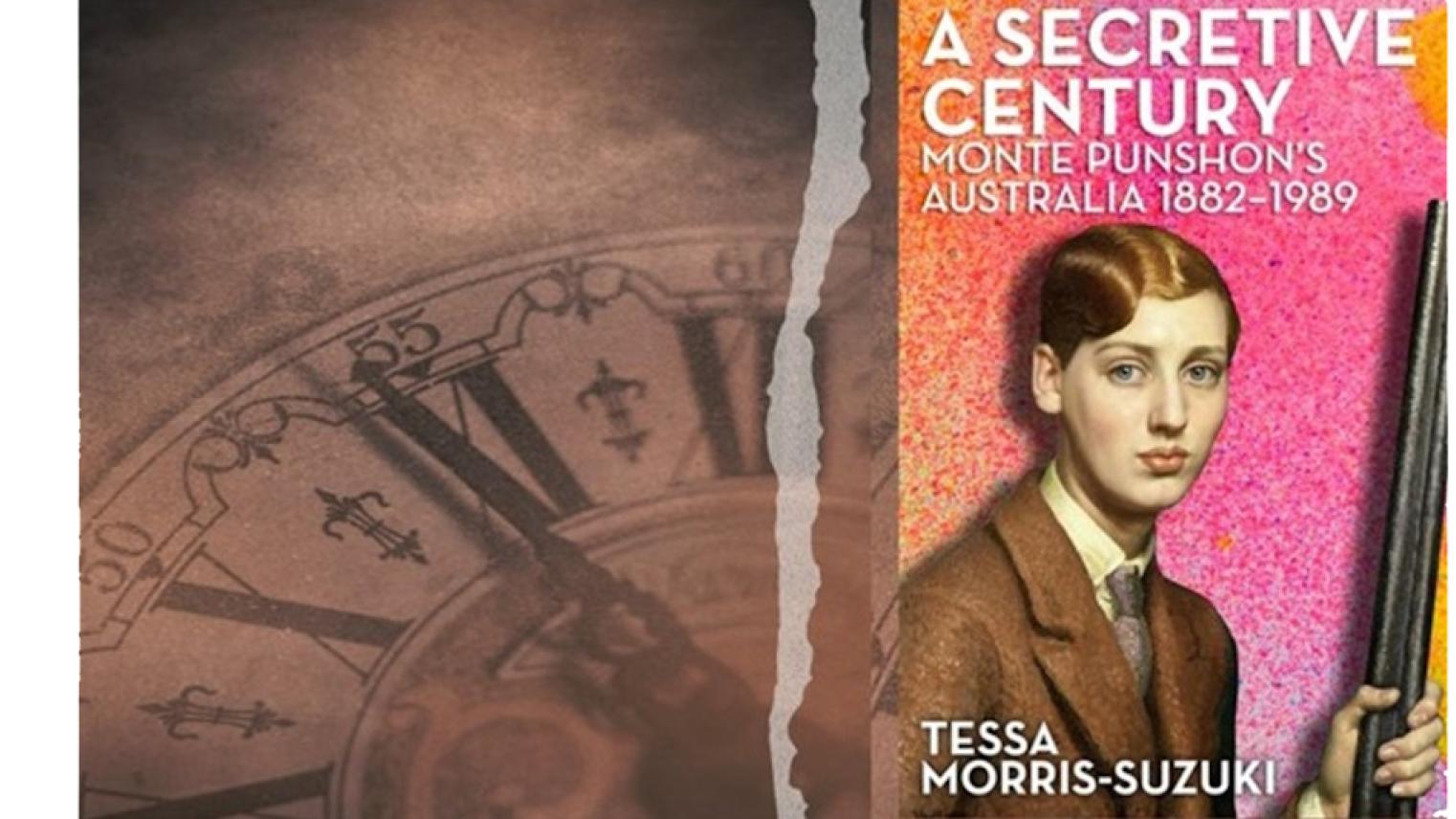Unveiling Australia’s Hidden Histories: Monte Punshon’s Secretive Century

Dubbed the “world’s oldest lesbian”, Ethel May (Monte) Punshon (8 November 1882 – 4 April 1989) was a firebrand of her times. She lived in a society where appearances mattered and keeping them up often involved creating silence around ancestral origins, painful memories, and personal desires. Yet, despite growing up in a secretive century, she refused to be labelled.
Monte Punshon was, at various times, Ethel May Punshon, Miss Montague, Monte, Mickey, and Erica Morley Punshon. She moved effortlessly from the Methodist respectability of bourgeois Ballarat to the bohemian world of children's traveling theatre; from patriotic amateur acting to pioneering radio work, from a dear old lady with perfect nineteenth-century diction to the bad girl who frequented edgy Melbourne bars, playing a lively part in the secret drag parties of 1930s queer Melbourne.
In a life that spanned more than a century, Monte Punshon witnessed crucial events in Australia's history, and her story shines a light on the hidden corners and complexities of late nineteenth- and twentieth-century society. And it is only fitting that the story of this remarkable woman has been imaginatively narrated in a biography penned by another extraordinary woman: Emerita Professor Teresa Morris-Suzuki.
Through a Historian’s Lens: Illuminating a Forgotten Tale
In the realms of historical scholarship, certain narratives often remain obscured, waiting for dedicated researchers to unearth and illuminate them. Emeritus Professor Tessa Morris-Suzuki's latest work, A Secretive Century: Monte Punshon's Australia, delves deep into one such hidden story, shedding light on the enigmatic figure of Monte Punshon and her profound impact on Australia during the 20th century.
Morris-Suzuki has artfully pieced together Monte’s story and experiences with the help of historical remnants of the past. Monte Punshon kept scrapbooks, which featured cutout articles on Japan, women in prominent public roles and women in masculine attire. The book thus meticulously pieces together diverse fragments of Punshon's life and her influence on Australian society. Through meticulous research and compelling storytelling, Morris-Suzuki paints a vivid portrait of Punshon, from her early years to her pivotal role in shaping Australia's cultural and political landscape.
Central to Morris-Suzuki's narrative is the exploration of Punshon's secretive nature and its ramifications. As a figure who operated largely in the shadows, Punshon's legacy is as much about what remains concealed as what is revealed. Morris-Suzuki masterfully navigates through archival records, personal accounts, and historical documents to uncover the complexities of Punshon's life and the echoes of his actions in contemporary Australia.
As Tessa Morris-Suzuki aptly states, the book is at one level a reflection of her own experience of being a woman and trying to find her niche amid the usual trappings of stereotypes and preconceived misconceptions.
As the narrative unfolds, readers are invited to embark on a journey of discovery—one that challenges assumptions, reveals hidden truths, and ultimately enriches our collective understanding of Australia's complex and multifaceted history.
Moreover, the book serves as a critique of historical opacity and the selective nature of public memory. Morris-Suzuki challenges readers to reconsider established narratives and invites them to engage critically with the complexities of Punshon's legacy. By shining a light on this secretive century, she encourages a broader conversation about how history is constructed and the voices that are often marginalized or silenced.
Embracing Identity and Breaking Boundaries
Monte Punshon's personal life and love interests were quite private, reflecting the secrecy that characterized much of her life. She moved in circles where unconventional relationships were not openly discussed, especially during the early to mid-20th century. Her biography and personal details, including her romantic involvements, remain relatively obscure, aligning with her preference for maintaining privacy in a society that often enforced strict social norms on personal relationships and sexuality.
One of the most interesting aspects of Monte Punshon’s life collide with the author’s own penchant for Japanese culture. Monte Punshon had a notable interest in Japan, which was believed to be uncommon for her time. She was intrigued by Japanese culture and arts, particularly during the early 20th century when Japan's influence was starting to spread globally. This interest extended beyond curiosity; Punshon was known to have actively engaged with Japanese art forms and cultural expressions, reflecting a broader trend of cultural exchange and fascination with Japan during that period. She was also active in hosting exchange students from Japan.
A Secretive Century: Monte Punshon's Australia is not merely a biography but a profound exploration of Australia's hidden histories. It stands as a testament to Morris-Suzuki's scholarly rigour and her commitment to unravelling the layers of secrecy that obscure our understanding of the past.
Tessa's book will be launched on 16 September during CHL's flagship annual festival, Immersia. For details, click here.